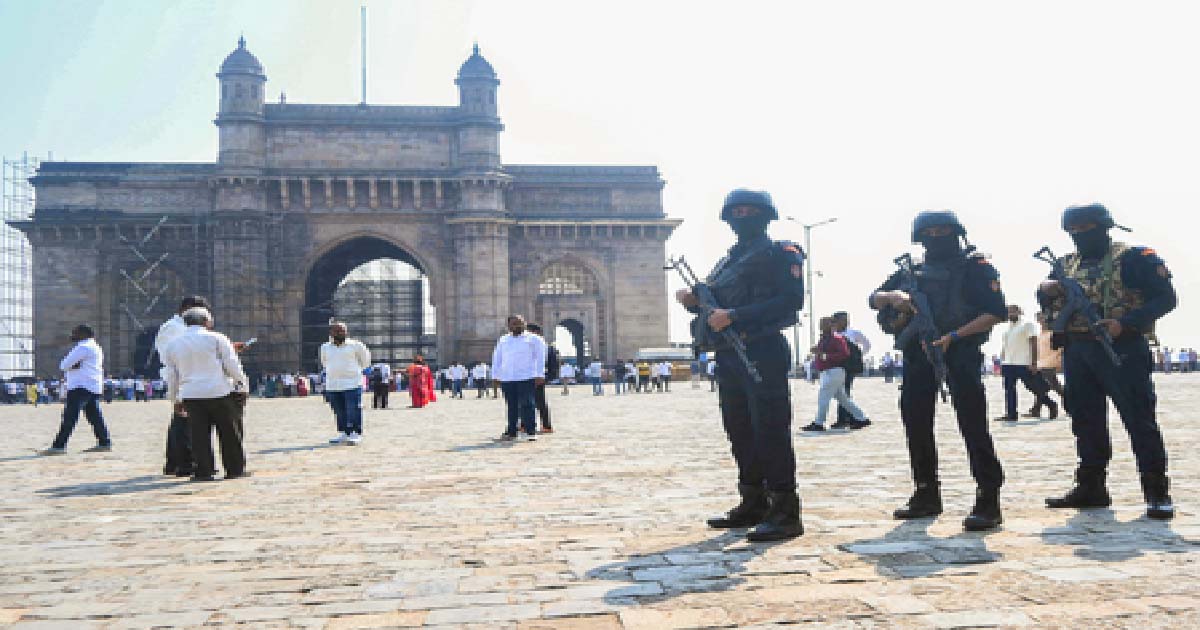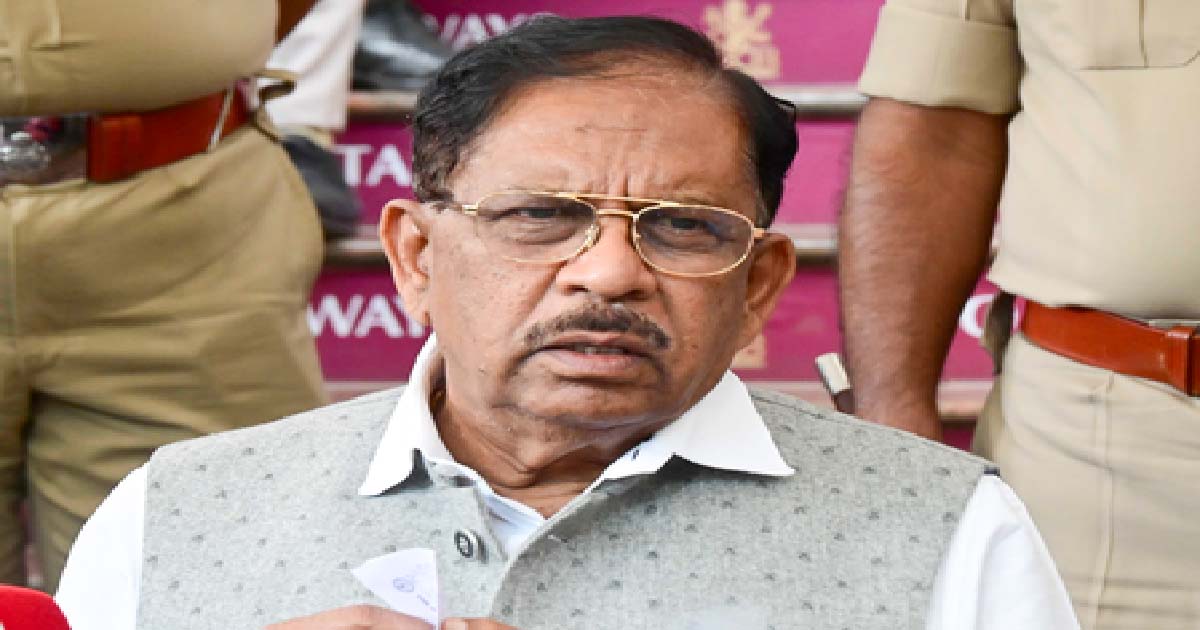National News
Spices, potatoes, tomatoes, chilies production estimated lower this year

Production of many important spices, potatoes, tomatoes and both red and green chillies is estimated to be less in 2021-22 compared to 2020-21, as per the data released on Thursday.
The second advance estimates of horticulture crop and area data shows that a general increase in production of fruits, vegetables and honey is expected while there will be a decrease in production of spices, flowers, aromatics and medicinal plants and plantation crops over previous year.
However, overall total horticulture production in 2021-22 is estimated to be 341.63 million tonnes (MT), an increase of about 7.03 MT or 2.10 per cent over the 2020-21 production, as per the Department of Agriculture and Farmers Welfare data.
Onion production is estimated to be 31.70 MT against 26.64 MT in 2020-21, potato production is expected to be 53.58 MT compared to 56.17 MT in 2020-21, while tomato production is expected to be 20.34 MT compared to 21.18 MT in 2020-21, the data showed.
For green chillies, it is expected to be 4.2 MT this year compared to 4.3 MT last year while production of red chillies (dried) is expected to be 1.8 MT versus 2 MT last year.
Asked if these estimates would have an impact on the market prices, Potato and Onion Merchants Association head, Rajendra Sharma said: “These are figures up to March 2022 that the government is releasing only now. People have finished consuming the produce from up to March. Whatever we now have in the market is from April, May and June, so it should not make a difference.”
Sharma, who is also the former President of Federation of Fruit and Vegetables Trade Associations of Delhi, also added that the current produce in the market will be in use till October almost as the rain months bring almost nothing much from any of these to the market.
Overall, fruit production is estimated to be 107.10 MT compared to 102.48 MT in 2020-21 while the production of vegetables is estimated to be 204.61 MT, compared to 200.45 MT in 2020-21.
Among the spices, production of ajwain, cardamom, cinnamon, coriander, cumin, nutmeg, and black pepper is estimated to be less than previous year.
Production of all major plantation crops – arecanut, cashewnut and coconut – too is estimated to be less than previous year, the Agriculture Department data showed.
Crime
Mumbai Police detain three linked to Delhi blast accused

Mumbai, Nov 18: The Mumbai Police have detained three individuals linked to the accused in the Delhi car blast attack case, officials said on Tuesday. They are now being sent to Delhi for further interrogration.
These three individuals were detained from different locations in a secret operation carried out by a special team of the Mumbai Police and are currently being questioned.
According to the officials, the detained people were in contact with the accused through a social media application.
The police have also mentioned that these people are from well-to-do families, just like Dr Umar Muhammad and Dr Muzammil, two key accused in the terror module linked to the Delhi blast.
Similar investigations are being conducted in various districts across the state, officials.
Earlier on Monday, sources said that investigators have found encrypted conversations and the movement of weapons has revealed a tightly organised inner circle within the terror module linked to Dr Umar Muhammad, the driver of the i20 car that exploded near Delhi’s Red Fort, killing at least 13 and injuring over a dozen people.
According to official sources, Umar created an encrypted Signal group nearly three months ago, using a name marked with special characters to avoid surveillance.
He reportedly added Muzammil, Adil Rather, Muzaffar Rather and Maulvi Irfan Ahmad Waghe to this channel, which functioned as the primary hub for internal coordination.
A major turning point in the probe came after an assault rifle and a pistol were recovered from the car of Dr Shaheen Shahid. Investigators believe Umar had procured these weapons and handed them to Irfan sometime in 2024.
Shaheen had previously seen the same weapons during a visit to Irfan’s room along with Muzammil, and is suspected to have contributed the largest share of funds used to sustain the module’s operations.
Sources said the evidence so far points to a clear hierarchy and division of roles. Financial support was primarily managed by the three doctors, with Dr Muzammil playing a central role.
Recruitment of Kashmiri youths was handled by Irfan, who is believed to have brought in two arrested recruits — Arif Nisar Dar alias Sahil and Yasir ul Ashraf.
Investigators have also documented several instances of weapon movement. In October 2023, Adil and Umar visited Irfan at a Kashmir mosque, carrying a rifle hidden in a bag, and later left after cleaning its barrel.
A month later, Adil again arrived at Irfan’s residence with a rifle. Muzammil and Shaheen also reached the location that same day. The weapon was reportedly kept with Irfan, and Adil returned the next morning to collect it, sources said.
The findings indicate a coordinated network operating through encrypted platforms, involving systematic fundraising, targeted recruitment and careful handling of weapons, they added.
The network is linked to the Faridabad terror module, which was exposed on November 9 after police seized 2,900 kg of explosives and ammunition from rented rooms linked to Muzammil, a doctor associated with the Al Falah University.
Umar, another doctor associated with Al Falah University, was driving the car that exploded near the Red Fort on November 10, triggering a massive investigation into the module’s operations. Police have since intensified the hunt for all individuals connected to the network.
Further investigations are underway.
Crime
K’taka HM vows swift action after techie loses Rs 31.83 crore in ‘digital arrest’ scam

Bengaluru, Nov 18: Karnataka Home Minister G. Parameshwara on Tuesday said the government would take firm action in the online fraud case involving the “digital arrest” of a 57-year-old Bengaluru tech professional who lost Rs 31.83 crore.
He confirmed that it is the largest online financial scam reported in Karnataka to date, adding that the people behind the digital arrest would not be spared.
Speaking to reporters, Parameshwara said that the fraud took place over more than a year, involving about 187 transactions from the victim’s account. “She could have approached the police at any stage, and had she done so earlier, she would not have lost such a large amount,” he said.
He said the state had not witnessed a digital arrest case of this scale earlier. “We are treating the case with full seriousness and will trace those responsible,” he said.
“If she realised the fraud only after transferring money amounting to crores, it shows how deeply she was affected by the scam. Now that the case has come to light, we have taken it seriously. This is the highest-ever online fraud reported from our state. This is the first time such a large-scale digital arrest case has been reported and such a huge amount siphoned off,” Parameshwara said.
The Karnataka Home Minister also referred to a separate case in which people based in Karnataka had virtually detained individuals in the United States, pointing out that the method was not new to local investigators.
The incident came to light on Monday, when it was reported that a 57-year-old Bengaluru tech professional had lost Rs 31.83 crore to cybercriminals after being held in a digital arrest for more than six months.
Following a complaint at Bengaluru’s East Cyber Crime Police Station, the police launched a hunt to trace the gang.
The victim transferred Rs 31.83 crore in 187 transactions, exhausting nearly all her savings and deposits except her fixed deposits. The accused repeatedly assured her that the money would be returned by February after verification but kept delaying the deadline with one excuse after another.
Growing suspicious, the victim lodged a complaint with the cybercrime police on November 14. In the complaint, she stated that due to her son’s marriage ceremony, she could not approach the police early.
According to the police, the cybercriminals kept the victim under digital arrest for more than six months and severed contact after extorting the amount.
Her ordeal began on September 15, 2024, when she received a call from someone claiming to represent a reputed courier company, who told her that a package in her name — containing three credit cards, four passports, and banned MDMA — had been received at a courier centre in Andheri, Mumbai.
The victim told the caller that she lived in Bengaluru and had no knowledge of the package. He then warned her that, since the parcel was linked to her mobile number, it could involve cyber fraud and she needed to file a complaint. Before she could respond, her call was transferred to another person claiming to be an officer from the Central Bureau of Investigation (CBI).
The accused prevented her from contacting the police or seeking legal help by convincing her that cybercriminals were monitoring her every move. They later issued direct threats, warning that if she revealed anything, her entire family would be implicated.
With her son’s wedding approaching, she yielded to the pressure and followed their instructions. The accused then contacted her via Skype, identifying himself as Pradeep Singh, and informed her that another associate, Rahul Yadav, would monitor her for a week. During this period, she was confined to her home, while the accused worked remotely from her residence.
On September 23 last year, the accused instructed the victim to declare her properties to the Reserve Bank of India’s Financial Intelligence Unit (FIU). After she disclosed her assets and cash, they extorted money from her in stages and even provided a forged clearance certificate.
The police said that the investigation is underway.
Crime
Mumbai Cyber crime: Senior Executive Duped Of ₹10.68 Lakh Via Insta Jumbo Loan Hack

Navi Mumbai: A major cyber fraud came to light in Kamothe after a senior executive of a reputed Mumbai-based company was cheated of Rs 10.68 lakh, with the fraudster hacking his mobile phone and withdrawing money through an Insta Jumbo Loan, police said.
According to Kamothe Police, the 37-year-old discovered the fraud on November 3 when his bank transactions suddenly stopped working. On rushing to his bank, he learned that 23 unauthorised transactions had taken place between October 30 and November 2, following which his account had been blocked.
Police said the cyber accused first obtained two Insta Jumbo Loans of Rs 5.11 lakh and Rs 5.04 lakh from the complainant’s account without permission and immediately converted the total into a Fixed Deposit. The next day, the fraudster prematurely broke the FD and transferred the entire amount into 23 unknown bank accounts under the guise of ‘gifts’. The complainant’s salary amount of Rs 55,343 was also withdrawn.
“Hackers are using new techniques to breach mobiles and extract loans directly from bank accounts. Citizens must remain extremely cautious,” a police official said.
The complainant lodged a complaint on the Cyber Portal on November 4 and filed a formal complaint at Kamothe Police Station on November 11. Police have registered an FIR under cheating and relevant sections of the IT Act. A probe to trace the unknown cyber accused, is underway.
-

 Crime3 years ago
Crime3 years agoClass 10 student jumps to death in Jaipur
-

 Maharashtra1 year ago
Maharashtra1 year agoMumbai Local Train Update: Central Railway’s New Timetable Comes Into Effect; Check Full List Of Revised Timings & Stations
-

 Maharashtra1 year ago
Maharashtra1 year agoMumbai To Go Toll-Free Tonight! Maharashtra Govt Announces Complete Toll Waiver For Light Motor Vehicles At All 5 Entry Points Of City
-

 Maharashtra1 year ago
Maharashtra1 year agoFalse photo of Imtiaz Jaleel’s rally, exposing the fooling conspiracy
-

 National News1 year ago
National News1 year agoMinistry of Railways rolls out Special Drive 4.0 with focus on digitisation, cleanliness, inclusiveness and grievance redressal
-

 Maharashtra1 year ago
Maharashtra1 year agoMaharashtra Elections 2024: Mumbai Metro & BEST Services Extended Till Midnight On Voting Day
-

 National News1 year ago
National News1 year agoJ&K: 4 Jawans Killed, 28 Injured After Bus Carrying BSF Personnel For Poll Duty Falls Into Gorge In Budgam; Terrifying Visuals Surface
-

 Crime1 year ago
Crime1 year agoBaba Siddique Murder: Mumbai Police Unable To Get Lawrence Bishnoi Custody Due To Home Ministry Order, Says Report












